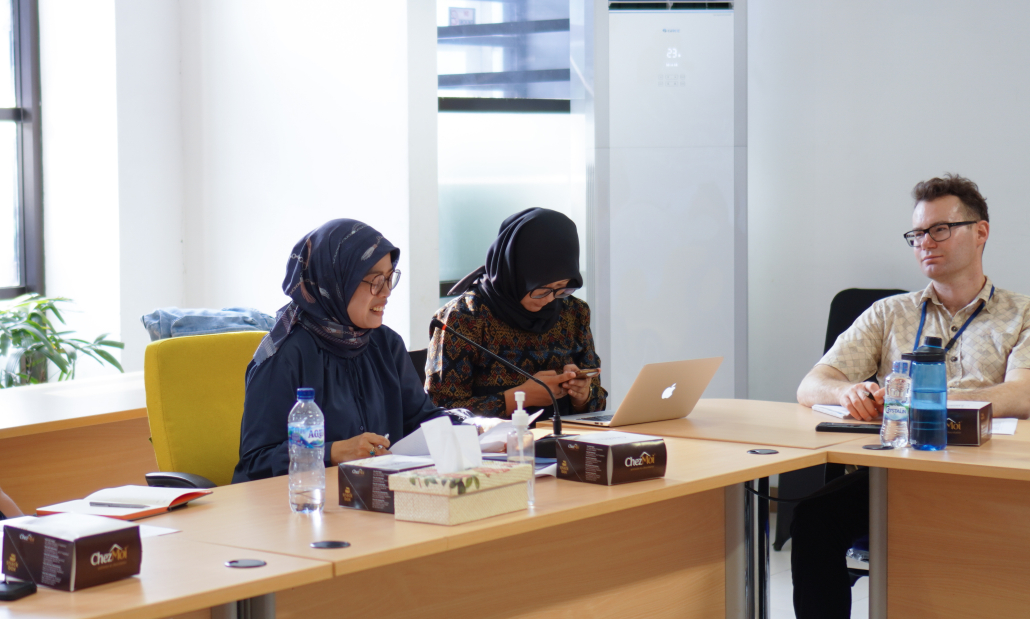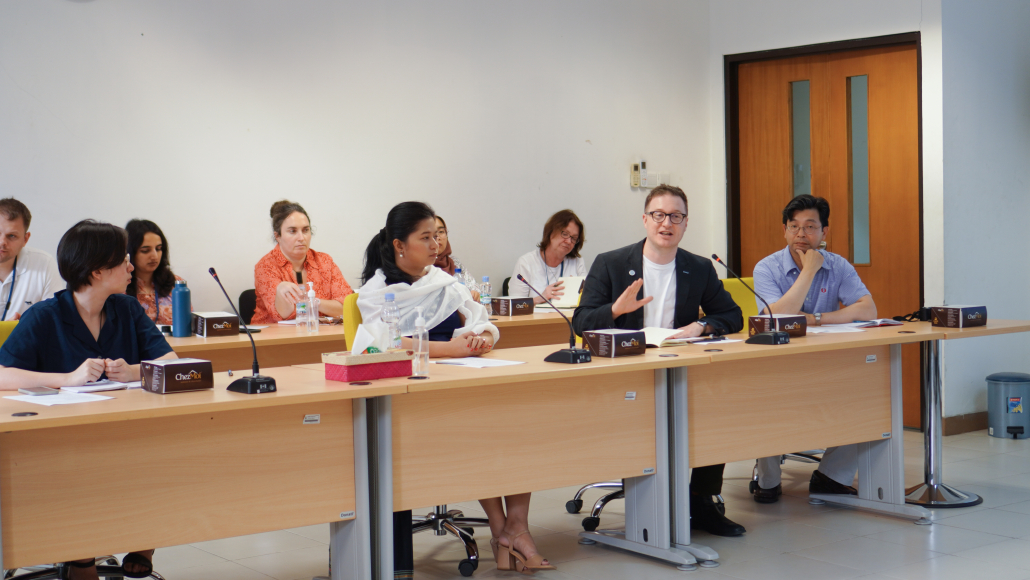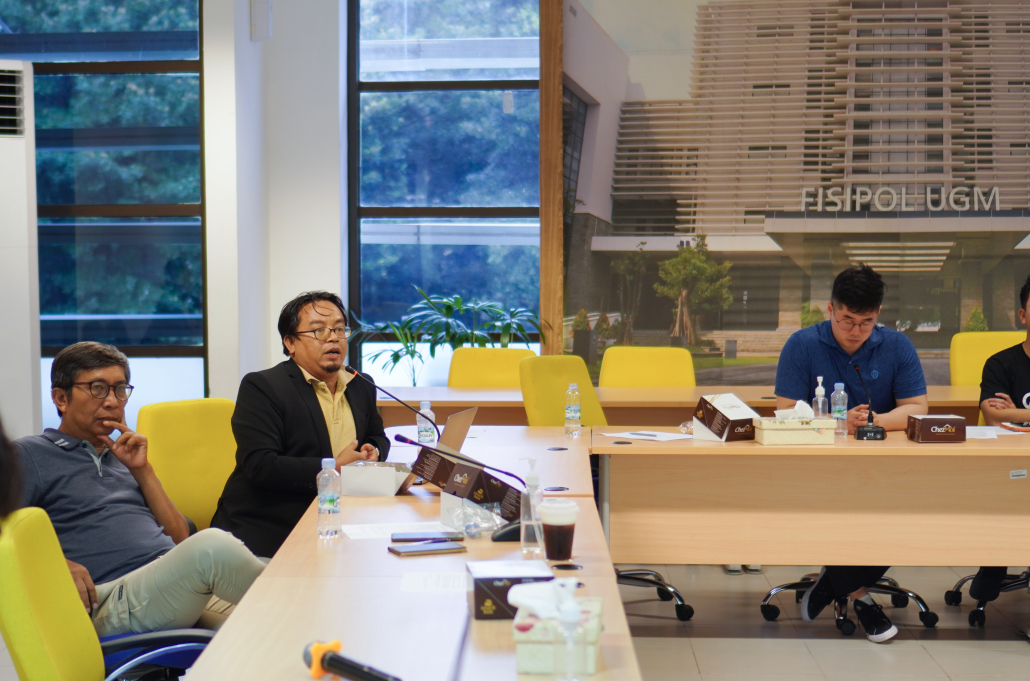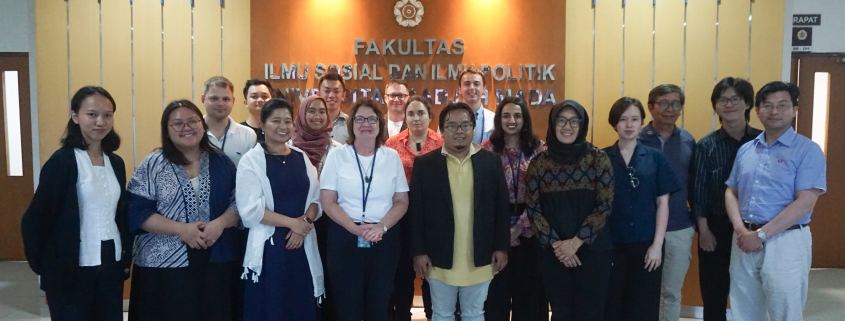[IIS Recap] Discussion with the Asia New Zealand Foundation: Contesting Loss for Indonesian Communities in Climate-Crisis
Yogyakarta, 27 June 2024 — The Global Engagement Office (GEO) and the Faculty of Social and Political Sciences (FISIPOL), Universitas Gadjah Mada, in collaboration with the Institute of International Studies, Department of International Relations, Universitas Gadjah Mada (IIS UGM), hosted a discussion with the Asia New Zealand Foundation. The discussion was held in the Dean’s courtroom, 2nd floor of the BB building, FISIPOL, and included several series of activities in a hybrid scheme. It aimed to talk about the main theme of Contesting Loss for Indonesian Communities in Climate-Crisis.

Dr. Fina Itriyati, the Vice Dean of FISIPOL UGM, delivered her welcome speech.
The discussion was moderated by Yulida Nuraini Santoso, M.Sc, the Manager of GEO FISIPOL, and began with the opening remarks from Dr. Luqman-nul Hakim, the Director of the Institute of International Studies, Universitas Gadjah Mada. It continued with a welcome speech from the Vice Dean of FISIPOL UGM, Dr. Fina Itriyati. “It is important to see how communities can participate in policy-making to ensure their voices are heard. Thus, cooperation between universities and think tanks is crucial to create a collective effort against climate change,” said Dr. Fina.

Dr. Jordan King from the Asia New Zealand Foundation delivered his welcome speech.
Furthermore, the Asia New Zealand Foundation’s Representative also delivered a welcome speech. According to Dr. Jordan King, New Zealand and Indonesia share significant similarities, including the presence of strong indigenous communities, their geographical location within the Ring of Fire, a close trading partnership, and a history of colonization. Due to its significant economic expansion and geopolitical influence, it is imperative to visit Indonesia and have a comprehensive understanding of the country.
The discussion with the Asia New Zealand Foundation began with the first presentation from Ms. Elisa Sutanudjaja, the Executive Director of RUJAK Center for Urban Studies. This presentation was based on field research findings in the Penjaringan sub-district. Ms. Elisa highlighted that climate change is not well-identified. As communities experience different conditions, they have different methods to identify climate change. Her findings also suggest that the existing national policy puts communities at more risk since the community is not engaged in the policy-making process. The inadequate leadership and insufficient engagement with the community generate unclear indicators and goals of climate change that endangers the livelihood of the Indonesian community.
The second presentation was delivered by Dr. Agung Wardana from Universitas Gadjah Mada, who explained the loss and damage in Pari Island, Kepulauan Seribu Regency. According to Dr. Agung, Indonesia is highly vulnerable to the effects of climate change, where numerous small islands in the country are in danger. The beauty of Pari Island has led to conflicts over its ownership. The company asserts ownership over 90% of the island, while the government manages the remaining 10% for conservation. Additionally, due to the geographic condition of Pari Island, the area is more prone to face severe problems regarding climate change impacts, such as more frequent coastal flooding. It puts the communities in a vulnerable economic condition as they depend on fishing for their livelihood.

Dr. Luqman-nul Hakim, the Director of the Institute of International Studies, Universitas Gadjah Mada, presented his ongoing research in the discussion.
In the last presentation, Dr. Luqman-nul Hakim presented the Politics of Sustainable Development in an Age of Climate Crisis. Indonesia has been involved in various global climate regimes and tried to adopt the global goals on climate change. However, the implementation of those normative goals in the national development context remains uncertain. “National climate governance strengthens the technocratic approach to deal with the climate crisis, and Indonesia has not sufficiently developed tools related to the Loss and Displacement issue,” emphasized Dr. Luqman. The discussion was then followed by a Q&A and documentation session.
Written by: Anggita Fitri Ayu Lestari
Editor: Albert Nathaniel & Nabilah Nur Abiyanti



Leave a Reply
Want to join the discussion?Feel free to contribute!